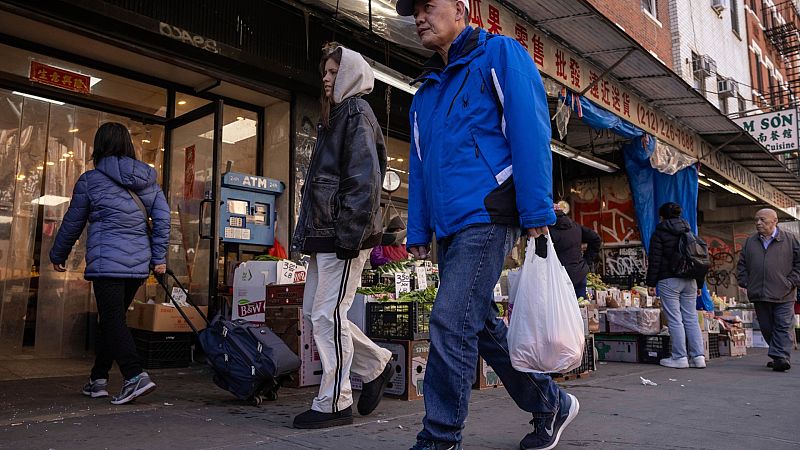
US inflation declined last month as the cost of gas, airline fares, and hotel rooms fell, a sign that price growth was cooling even as President Donald Trump ramped up his tariff threats.
Consumer prices rose just 2.4% in March from a year earlier, the Labour Department said on Thursday, down from 2.8% in February. That is the lowest inflation figure since September.
Month-on-month inflation came up to 0.1% in March, down from 0.2% in February, while missing analyst expectations of 0.3%.
Gasoline prices dropped -9.8% year-on-year in March, down from -3.1% in February.
Fuel oil prices fell -7.6% last month compared to the prior year, compared to a decline of -5.1% the previous month. On the other hand, natural gas prices increased 9.4% year-on-year in March, up from 6% in February.
Annual inflation for shelter reduced marginally to 4% last month, down from 4.2% in February, whereas prices for used cars and trucks rose 0.6% in March, compared to 0.8% in the previous month.
Transportation inflation also rose at a slower pace in March, at 3.1% year-on-year, compared to 2.6% in February.
However, new vehicle prices rose 0.1% in March and stayed stagnant on an annual basis.
Food inflation increased to 3% year-on-year, versus 2.6% in February.
Core prices
Excluding the volatile food and energy categories, core prices rose 2.8% compared with a year ago, down from 3.1% in February, the second straight decline. Economists closely watch core prices because they are considered a better guide to where inflation is headed.
The report shows that inflation is mostly cooling after remaining stubbornly elevated through the fall and winter. Core prices were stuck at 3.3% for five months before slowing in February. Still, most economists expect that remaining tariffs could lift prices a bit later this year.
“Much like the employment report on Friday, the latest US inflation figures can already be considered as stale on release after the exhausting back and forth of tariff announcements," CJ Cowan, portfolio manager at Quilter Investors, said.
He added: "Federal Reserve minutes yesterday indicated concern about upside inflation risks, and over the past few days it has become increasingly clear that the Fed won’t pre-emptively cut interest rates but instead they would need to see more significant weakening in the labour market first."
Cowan highlighted that the US Federal Reserve may continue to proceed with a lot of caution when it comes to rate cuts, despite disinflationary forces, as a high degree of economic uncertainty remains.
Trump halts tariffs for 90 days
Trump had imposed sweeping tariffs on nearly 60 nations last week, which sent financial markets into a tailspin and caused sharp drops in business and consumer sentiment. He nonetheless paused those duties on Wednesday for 90 days, while keeping a steep 125% tariff on all imports from China, as well as 25% duties on steel, aluminium, imported cars, and many goods from China and Mexico.
The remaining duties are still likely to lift inflation this year, economists say, even with the 90-day pause on some tariffs.
The delay of the sweeping tariffs will likely limit upcoming price increases and has reduced the chances of a recession, economists say. Yet the uncertainty surrounding whether the duties will be imposed will continue to weigh on the economy.







